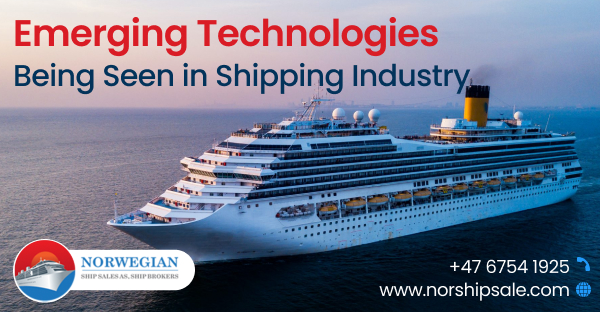The shipping industry is dynamic and fast-growing. It is in the ever-evolving process of incorporating new and advanced technologies to tackle various problems such as rising fuel costs, environmental pollution, and more. If you’re thinking about investing in marine vessels, get in touch with experienced cruise ship brokers who can guide you correctly. Ask them about the latest technologies in shipbuilding so you spend your money on the right kind of vessel.
Below here, we take a look at some of the latest technologies that could change the ways of shipbuilding very soon.
3D Printing Technology
3D printing technology is a process that lets you create and build real objects from virtual 3D models. You need to have special equipment that will break down your 3D virtual model into individual slices, and each section is then printed out on a 3D printer. Currently, this technology is used for producing scientific equipment, small structures, prostheses, and models used in a variety of applications. The 3D printing processes available right now are not yet commercially viable or sustainable. But if used on an industrial scale, the shipbuilding industry can utilize this technology to build ships of complex geometric designs by printing the different elements of the ship on a 3D printer.
Robotics
Robotics technology has become an essential part of many manufacturing industries. High-skilled robots are used to increase the efficiency and speed of operational processes. They can be programmed to perform special jobs in a shorter time or used for dangerous tasks to improve worker safety. Robotics is mainly used in shipbuilding industry to increase the scale and speed of production in shipyards. They are used for welding process, blasting and painting surfaces, and other heavy-lifting tasks. Advanced robots have been invented for specific jobs like pipe cleaning.
Engines powered by LNG
Liquefied Natural Gas (LNG) has grown in popularity because of its environmental benefits. As the demand for LNG as an alternative fuel increases, the market for LNG fuelled ship engines is also expanding. Studies estimate that LNG fuel reduces carbon dioxide emissions by 20-25 percent compare to diesel engines, cuts down nitrous oxide emissions by about 92 percent, and almost completely eliminates sulphur oxide and particulates emissions. LNG fuel is also much cheaper than diesel, which helps save significant costs. This is why a lot of the major players in marine engine designing such as Mitsubishi, Wartsila, MAN Diesel & Turbo, and Rolles-Royce have been busy with the technological development of LNG fuelled engines.
Ballast Free Ship Design
Ballast water carried in a ship to achieve better stability has been known to cause marine pollution. Several micro-organisms and pathogens are found in the ballast water, which when disposed into the ocean creates ecological problems. A ballast-free ship design constitutes a network of longitudinal pipes running across the ship’s hull from the bow to the stern. This allows a continuous flow of local seawater, thus preventing the transfer of any contaminated water into the ocean. This technology is currently in developmental stage, but if tested successfully, can become the norm in shipbuilding.
Integrated Electric Propulsion
In this technology, the gas turbines or diesel generators in a ship are used to generate electricity which then powers up the electric motors that turn on the propellers or water jets. Integrated electric propulsion technology relies on electric transmission in place of mechanical transmission, thus eliminating the need for clutches and gearboxes.
Conclusion
When you’re looking to buy a marine vessel, contact credible and reputed cruise ship brokers for proper guidance in finding the right ship.


